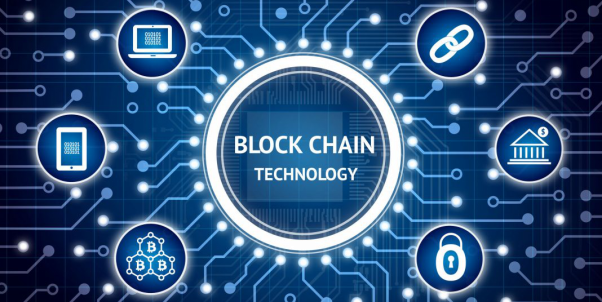Blockchain for Global Trade Compliance
Blockchain technology, initially crafted to chronicle cryptocurrency transactions, has vastly extended its reach across various industries over the past decade and a half. Today, it’s not just about tracking Bitcoin transactions; blockchain is revolutionizing how traders handle export compliance. But how do trade compliance and blockchain intersect? What role does blockchain play in bolstering trade compliance and enhancing transparency in trading practices?
Let’s first demystify blockchain before delving into its application in trade compliance.
Decoding Blockchain for Trade Compliance
In the quest for streamlined operations coupled with enhanced security and compliance, traders are turning to blockchain. But what is blockchain, and why is it significant for traders?
Stanford University elucidates, “Blockchain is essentially a series of data blocks linked in a digital, immutable chain, stored in a decentralized, open-source environment. Each block’s data is verifiable by every participant in the network, promoting trust, authenticity, and utility through its distributed structure.”
While blockchain’s underlying technology is complex, its practical application offers tangible benefits for traders, simplifying processes and enhancing security.
Blockchain’s Impact on Trade
Despite its challenges, blockchain is poised to significantly influence global trade, akin to the transformative effect of the shipping container, as explored by Emmanuelle Ganne of the World Trade Organization in 2018. This technology is reshaping trade operations, particularly in supply chain management.
Blockchain in Supply Chain Compliance
Adopting blockchain is emerging as a new benchmark for trade compliance, particularly in supply chain management. How does the integration of blockchain create a compliant trade environment within organizations?
Blockchain allows traders to maintain an unalterable record of transactions, enabling importers and exporters to track a product’s journey from origin to destination meticulously. This is particularly beneficial in the food and agricultural sectors, enhancing consumer trust, tracing the sources of outbreaks, and reducing risks.
Investopedia highlights, “Blockchain enables suppliers to document the origins of materials, allowing companies to authenticate their products and verify claims such as ‘Organic,’ ‘Local,’ and ‘Fair Trade.'”
Furthermore, blockchain aids traders in demonstrating due diligence by securely logging essential data needed for customs clearance and regulatory adherence.
Broadening Blockchain’s Role in Global Trade Compliance
Beyond supply chain management, blockchain offers various applications in global trade compliance, redefining traditional practices like contract creation, asset transfers, and record-keeping.
Here are three ways blockchain is beneficial for traders:
- Smart Contracts: Forbes Advisor discusses blockchain’s “smart contracts,” which execute automatically when conditions are met, streamlining transactions.
- Facilitating Transactions: The Crypto Council For Innovation notes that blockchain-based cross-border payments can reduce intermediaries, cut costs, and enhance transaction speed and security.
- Enhancing Data Security: The Better Business Bureau points out blockchain’s prowess in secure and transparent data movement, offering robust data protection and aiding in identity verification and data tracking.
Blockchain’s applications are vast, offering traders new avenues for conducting business more efficiently, profitably, and compliantly.
Blockchain’s Role in Enhancing Trade Transparency
Transparency is crucial in trade compliance, and blockchain significantly augments it through comprehensive record-keeping.
Blockchain advances operational transparency by:
- Building Trust: Blockchain’s accurate, public records help prevent transaction disputes and build consumer trust in a brand.
- Proving Due Diligence: The immutable, detailed ledger provided by blockchain enables traders to demonstrate due diligence during audits.
- Minimizing Errors and Enhancing Efficiency: The decentralized verification system and unalterable ledger reduce the potential for data manipulation and human error, streamlining administrative tasks.
Blockchain has the potential to influence every aspect of the import-export cycle, fostering transparency and enhancing compliance.
About OCR Services Inc.
OCR Global Trade Management is at the forefront of providing Global Trade Compliance Software Solutions. Our flagship offering, Global EASE, is employed by numerous organizations worldwide, ensuring compliance and due diligence across various trade facets. With solutions encompassing Sanctions & Risk Screening, Export Management, Licensing & Permits, and Import Management, Global EASE stands as a comprehensive resource for achieving trade compliance excellence.
Keep an eye for more news & updates on Discover Tribune!






